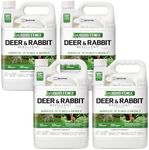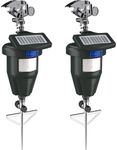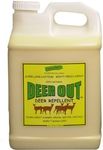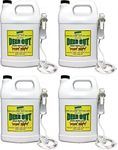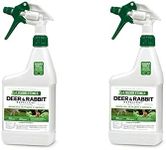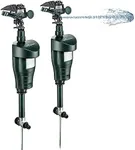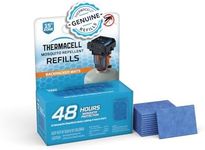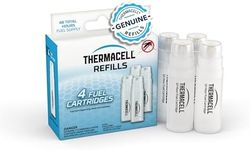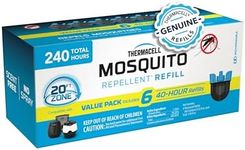Buying Guide for the Best Deer Rabbit Repellent
Choosing the right deer and rabbit repellent can be crucial for protecting your garden or property from these animals. The right repellent will effectively deter deer and rabbits without causing harm to them or your plants. When selecting a repellent, consider the following key specifications to ensure you pick the best fit for your needs.Type of RepellentRepellents come in various forms such as sprays, granules, and electronic devices. Sprays are easy to apply and can cover large areas, but may need frequent reapplication. Granules are good for creating barriers around specific areas and last longer than sprays. Electronic devices use sound or light to scare animals away and require minimal maintenance. Choose the type based on the area you need to protect and how often you are willing to reapply or maintain the repellent.
Active IngredientsThe active ingredients in repellents can vary widely, including natural substances like garlic, pepper, and essential oils, or chemical compounds. Natural ingredients are generally safer for plants, pets, and humans, but may need more frequent application. Chemical repellents can be more potent and longer-lasting but may pose risks to the environment and non-target species. Consider your preference for natural versus chemical solutions and any potential safety concerns.
Coverage AreaThe coverage area indicates how much space the repellent can protect. This is usually measured in square feet or acres. Smaller areas like flower beds or vegetable gardens may only need a small amount of repellent, while larger properties or orchards will require products that cover more extensive areas. Assess the size of the area you need to protect and choose a repellent that offers adequate coverage.
Duration of EffectivenessThis spec refers to how long the repellent remains effective after application. Some products may last only a few days, while others can be effective for several weeks or even months. Longer-lasting repellents reduce the need for frequent reapplication, saving time and effort. Consider how often you are willing to reapply the repellent and choose one that matches your maintenance preferences.
Weather ResistanceWeather resistance is important for outdoor repellents, as rain, wind, and sun can degrade their effectiveness. Some repellents are formulated to withstand weather conditions better than others. If you live in an area with frequent rain or extreme weather, look for products that are specifically labeled as weather-resistant to ensure they remain effective.
Safety for Plants and PetsSafety is a crucial consideration, especially if you have pets or edible plants in your garden. Some repellents can be harmful to plants or animals if ingested or applied incorrectly. Look for products that are labeled as safe for use around pets and edible plants to avoid any potential harm. Always follow the manufacturer's instructions for safe application.




